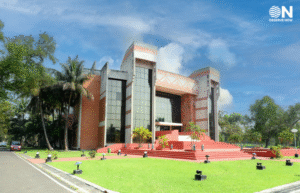The paradigm shift from rote learning to genuine comprehension is being brought about by embracing regional languages in education. It enhances information retention and its practical application in daily life. Students can grasp complex concepts in the language they are most comfortable with—whether it’s Tamil, Bengali, Marathi, or any other local tongue. The inclusive approach which is reflected in the National Education Policy (NEP) 2020 not only makes learning more intuitive; it also truly democratises education, making quality learning accessible to students, even in the most remote areas, and highlights the nation’s commitment towards diversity and inclusion.
The National Education Policy of 2020 emphasises the importance of multilingualism and encourages the use of mother tongues or regional languages as mediums of instruction, at least until Grade 5. This is fueled by a blend of cultural pride, the provision of internet access, and a growing recognition of the effectiveness of learning in one’s native language. This approach not only enhances comprehension but also instils a deeper connection to one’s roots.
Many of India’s prestigious competitive exams, such as JEE, NEET, have adapted to this paradigm by offering tests in up to 13 regional languages. Similarly, UPSC allows candidates to choose from a list of 22 modern Indian languages given in the 8th schedule of the Indian Constitution. This move reflects the nation’s commitment to embracing cultural richness and equal opportunity, ensuring that students from all linguistic backgrounds have an equal opportunity to excel in higher education and professional careers.
The demand for vernacular learning is immense; a Google report highlights that 90% of internet users in India prefer using their native language online. This underscores the importance of providing educational content in regional languages to meet the preferences and needs of the vast majority of internet users in the country.
Having said it all, the widespread adoption of vernacular education comes with its own set of challenges. Ensuring quality and consistency, particularly in remote areas, requires concerted and consistent efforts from policymakers, educators, and communities alike.
One of the key hurdles is the need for a robust network of teachers and educators proficient in local languages. This necessitates targeted training programs, incentives, and recognition for vernacular language educators, ensuring that they are equipped to lead this transformative movement. Teacher training and capacity building are significant, as empowering educators with digital literacy and pedagogical skills enhances the learning experience. Collaborating with teacher training institutes and NGOs to design context-specific programs, including practical sessions, is essential.
Vernacular teaching benefits teachers by allowing them to communicate more effectively with their students, which can enhance the teaching effectiveness and confidence. It also enables educators to better address the cultural and linguistic nuances of their students, enhancing the overall learning experience and creating a more inclusive classroom environment. Teaching in a familiar language fosters stronger teacher-student relationships, promotes active participation, and ensures that educational content is more relatable and comprehensible, ultimately leading to improved academic outcomes and student engagement.
Standardising a curriculum across diverse regions and languages presents a multifaceted challenge. A viable solution is to develop a flexible curriculum framework that includes core modules for fundamental subjects, ensuring consistency in essential learning, along with elective modules tailored to regional languages and cultural studies. This approach balances national educational standards with the need to incorporate vernacular.
Additionally, the development of high-quality vernacular teaching resources and infrastructure is crucial. From textbooks and digital learning materials to virtual classrooms and online platforms, a comprehensive ecosystem must be cultivated to support and sustain the growth of vernacular education.
Technology, when strategically harnessed, can revolutionise vernacular learning by embracing an approach that focuses on high-impact strategies. Content localization by adapting educational materials to the cultural context, idiomatic expressions, and language of specific regions; leveraging the ubiquity of smartphones by creating mobile learning platforms; and and gamifying learning experiences can further encourage consistent learning. Moreover, integrating speech recognition features into language learning apps, which consider regional accents and dialects, provides real-time feedback on pronunciation, helping learners improve their spoken skills.
Collaboration between government agencies, educational institutions, technology companies and local communities will be paramount in addressing these challenges. By pooling resources, expertise, and collective commitment, India can pave the way for a truly inclusive and equitable educational landscape where no student is left behind.
Authored by Sanyam Badola, Chief Digital Officer (CDO), PW
























